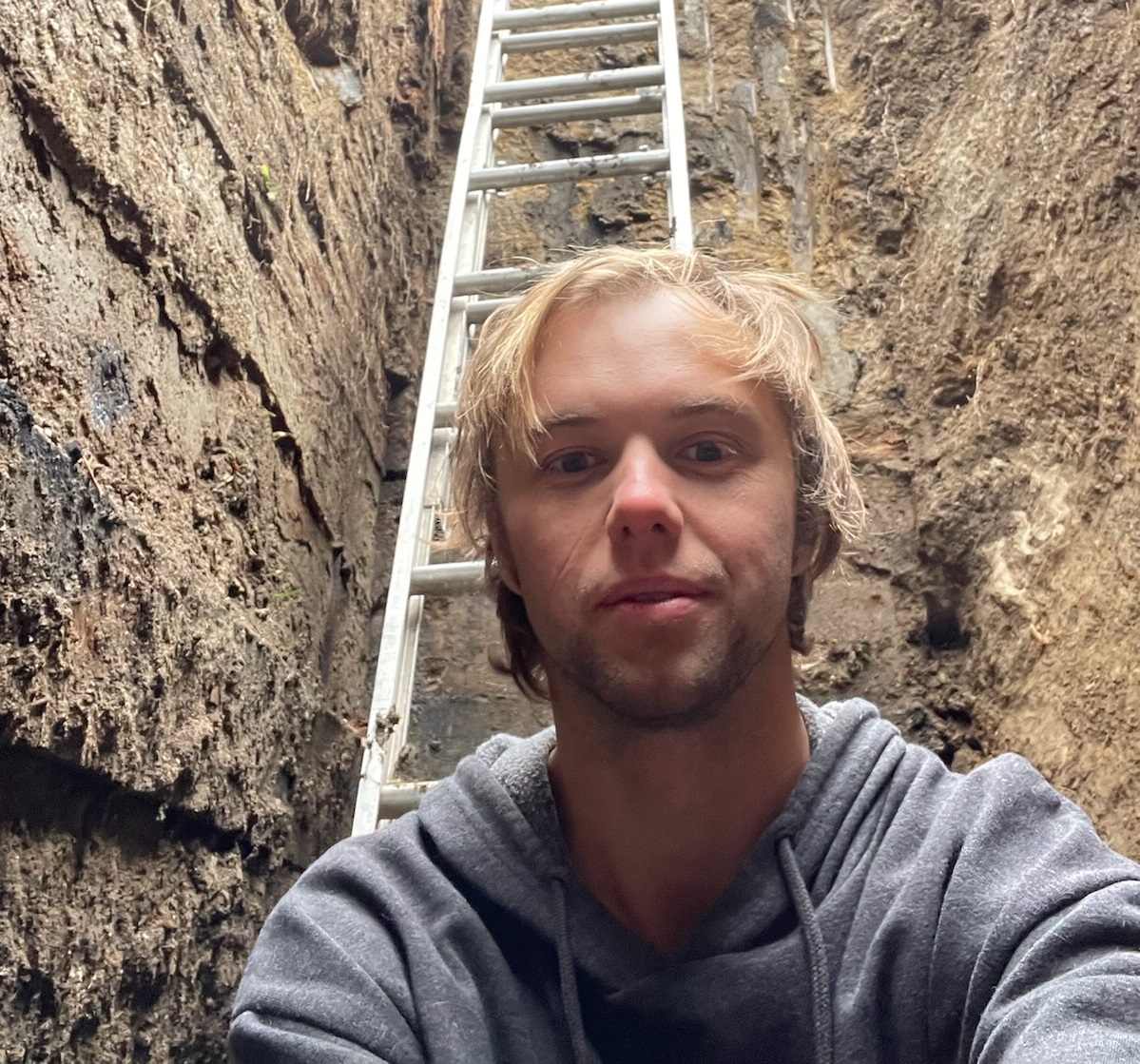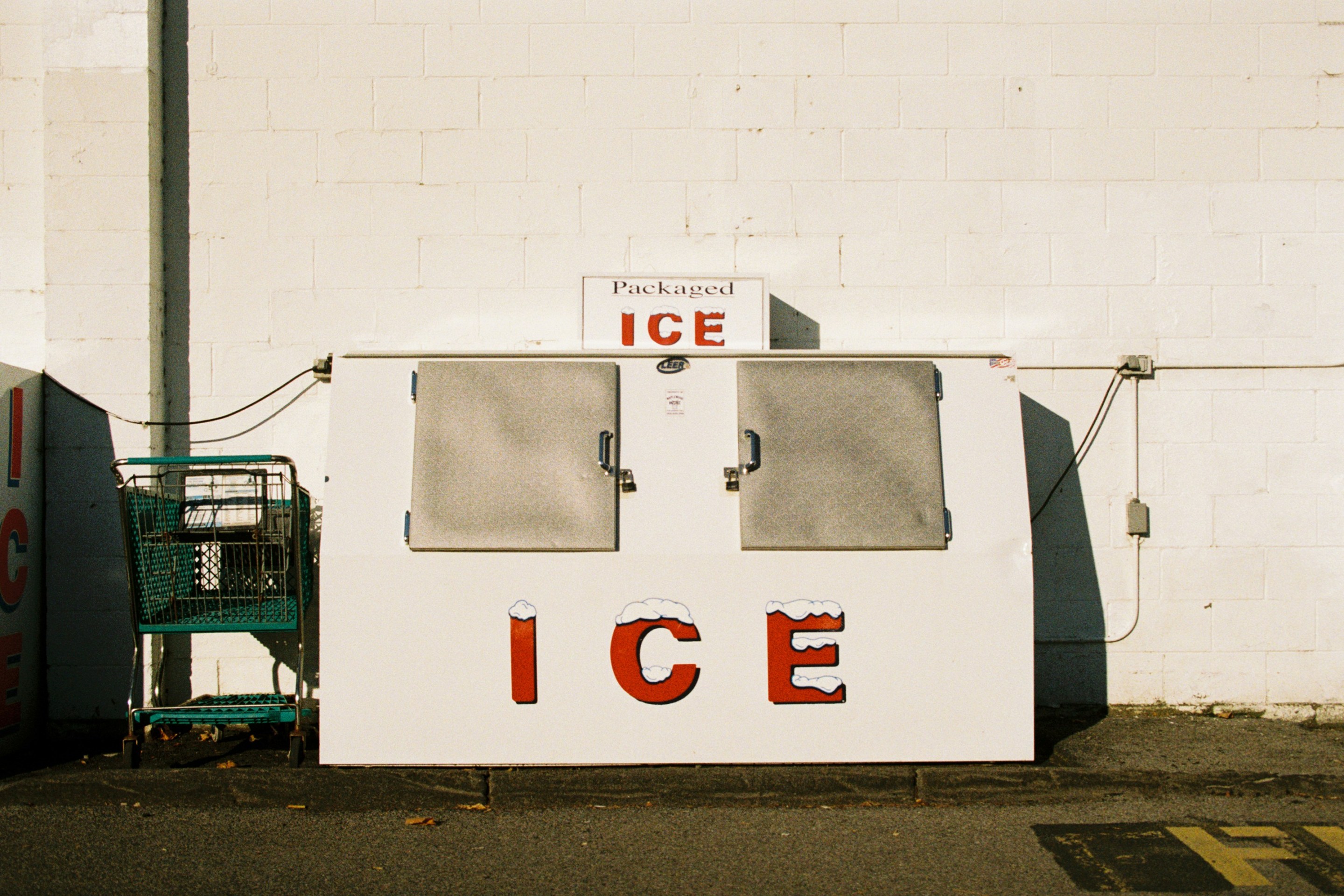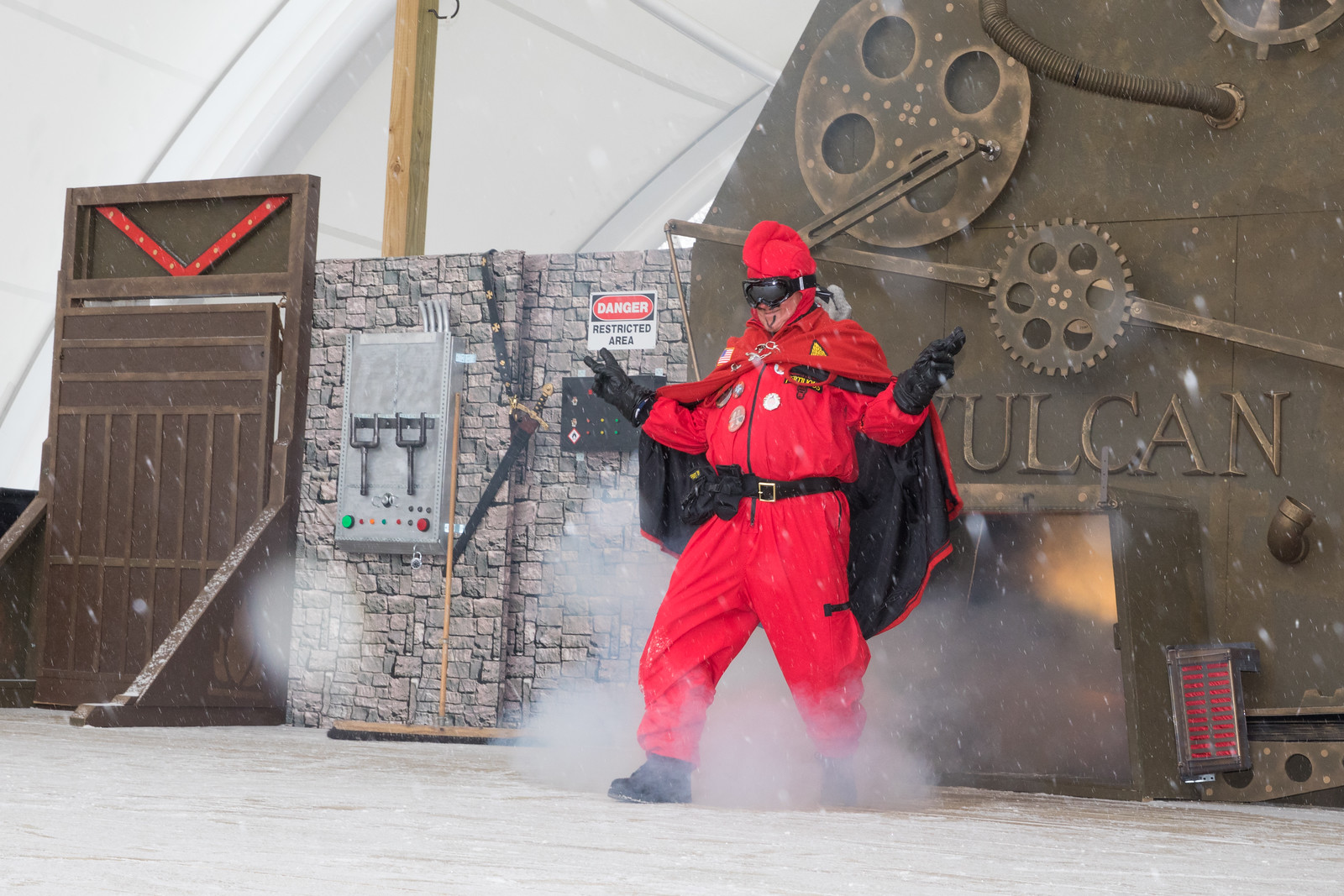Tom Askjem has been submerging himself in old toilets for over half his life. Vintage latrine pits aren't just the 31-year-old North Dakotan's passion—they're his livelihood.
The privy-digging bug bit him early. After the Red River flooding of 1997 forced the Askjems to relocate from Grand Forks to Buxton, young Tom began exploring the grounds of his grandparents' 1898 Victorian farmhouse. The previous owners left a trash dump, which Askjem mined for bottles he'd clean up and research. The game changed, research-wise, when the family got the internet in 2000.
“By the time I was 14, I dug the outhouse pit," Askjem says. "Even to this day, I would say there was an above-average amount of relics there. I was hooked at that point."
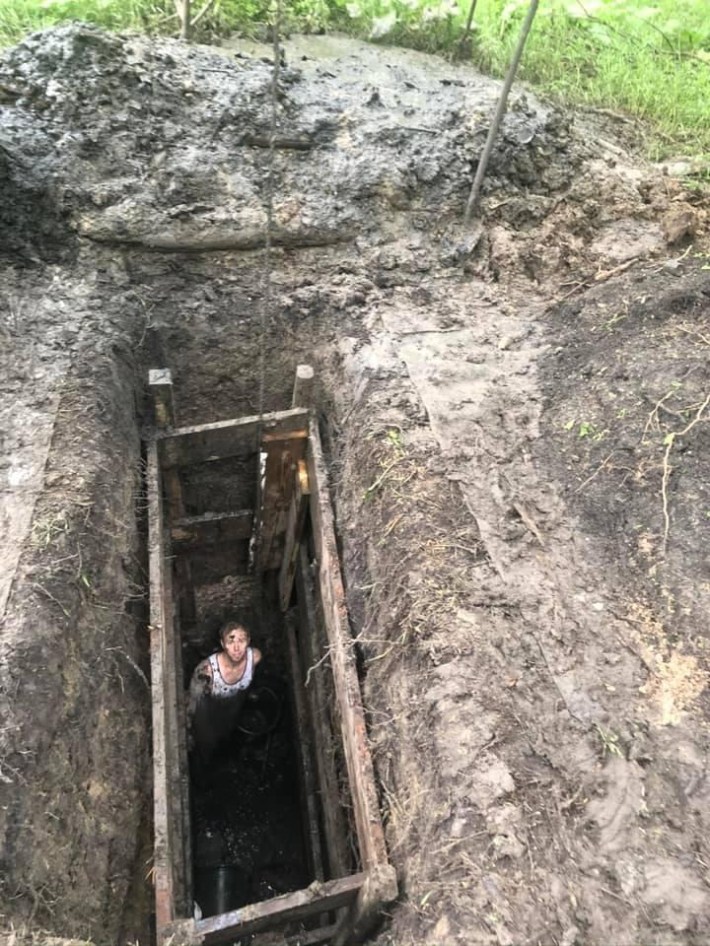
Old-time outhouses were a catchall for garbage disposal, Askjem explains, meaning far-flung ephemera remain entombed in pioneer dung—bottles, figurines, plates, even secrets. "Sometimes folks would hide their addictions, like liquor bottles or drugstore bottles; you hide things in the pit," he says.
Askjem "wasn’t out partying" with fellow North Dakota teens. He was too busy hitting up farmers and nursing homes for leads on abandoned properties. As a high schooler, Askjem and his dad dug down 30 feet by shovel to score their first major find: 30 Red Wing stoneware whiskey jugs. The elder Askjem didn't have the same passion for privy digging, so one of his old buddies—a bottle hound of 20 years—took Tom under his wing.
“He showed me everything he knew," Askjem says of his first digging partner. "The layers of the pit—this is stove ash, this is lime, this is undigested seeds; he showed me how to dig in towns, how to talk property owners into letting you dig."
By 23, Askjem became a full-time bottle digger, and he's since mined old toilets from coast to coast. So far, he's excavated about 1,300 pits, most of them in the upper Midwest. North Dakota alone has around 200,000 documented homestead sites, he says, and he intends to push further into Minnesota this summer. “Sometimes the house is gone, but I’ll still find the pit in the backyard,” he says.
Askjem once discovered a pair of brass knuckles in Crookston, Minnesota. ("You start wondering how and why it ended up there.") Outside the site of Fort Pembina, the one-time home to 300 Civil War soldiers from Minnesota known as “Hatch’s Battalions," he found a curious piece of curved cordwood. Askjem read newspaper accounts of a drunken soldier killing someone at the fort with a similar chunk of wood, and wonders if the killer tossed the murder weapon down the toilet. The bottoms of the bits reveal a lot about who lived there, he says: doll parts likely mean children, plate quality can indicate class, knickknacks from other countries might tell of immigrant origin.
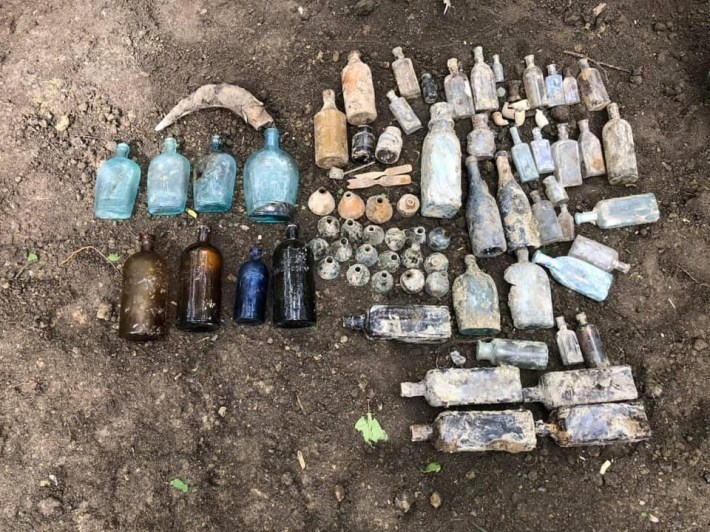
Gaining permission to mine sites is key, and most often requires asking private property owners to allow digs. Small-town city councils will hold votes on whether Askjem can explore city soil.
Most of the money comes from selling bottles to collectors, though Askjem also donates to museums and historical societies. He's authored two books—Nebraska Soda Bottles 1865-1930 and A History of North Dakota Bottling Operations 1879-1930—both of which are currently sold out. More books are on the way, he says, and he recently sold his personal bottle collection to fund those projects.
“They’re going to be major history books," Askjem says. "I went 20,000 miles across the western U.S. photographing high-end collections, folks who’ve been at it since the 1950s. A lot of the diggers and collectors are up in their years, kind of retiring. I’m kind of the youngest guy, and I can learn from them. It’s important to me to document these pieces."
Not everyone agrees Askjem is suited to document those pieces.
A 2001 New York Times piece described privy diggers as the outhouse equivalent of people who sweep over old battlefields with metal detectors, searching for collectable treasures like bullets and coins. University of Nebraska archeologist Peter Bleed described them as a combination of ''sincere but misguided history buffs" and outright "looters."
The concerns of academia audibly exhaust Askjem. “I kinda get viewed as a grave robber at times," he says, noting that he collaborates with archeologists and, should a body or prehistoric artifact ever turn up in a pit, he'd report it immediately.
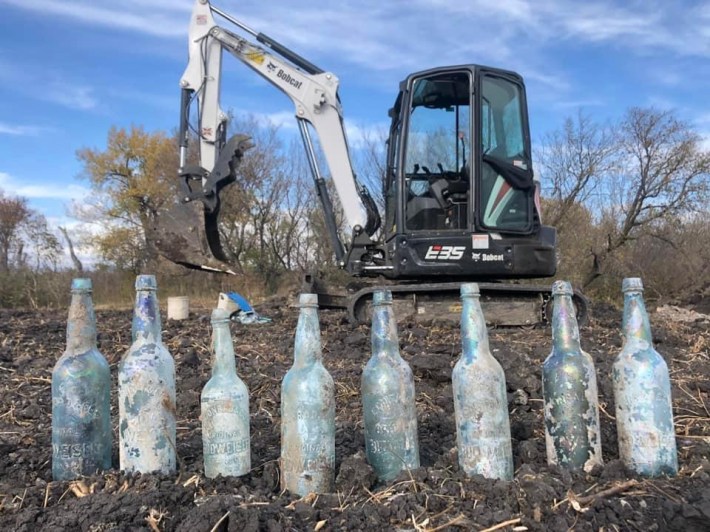
“In a perfect world, if archeologists were lining up at the doors of all these places to dig, I’d have no problem letting them have it," he says. "But these sites won’t be preserved forever. There’s urban renewal, additions being put on houses, septic systems being put in, farmland being ripped out, entire blocks being put in for housing. These pits are being destroyed, they’re being ripped up."
Documenting what's inside those pits is the purpose of "Below the Plains," a YouTube series Askjem and dig partner, Jake Cariveau, launched three month ago. The channel has 3,000+ subscribers, and as its chief digger/narrator he hopes viewers can glean historical lessons from the bottles they pull up outside old saloons, hotels, and houses.
“It’s as close to time-travel as you can get," he says.
